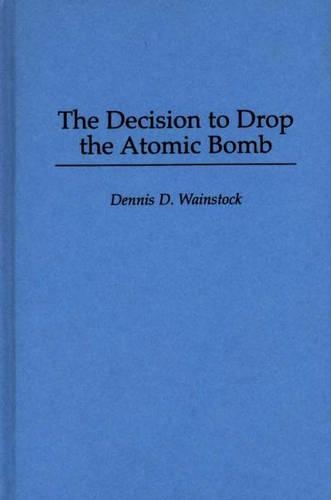
The Decision to Drop the Atomic Bomb
(Hardback)
Publishing Details
The Decision to Drop the Atomic Bomb
By (Author) Dennis D. Wainstock
Bloomsbury Publishing PLC
Praeger Publishers Inc
23rd May 1996
United States
Classifications
Tertiary Education
Non Fiction
Second World War
Modern warfare
European history
History of the Americas
Diplomacy
Political structure and processes
War and defence operations
940.5425
Physical Properties
Hardback
192
Width 156mm, Height 235mm
425g
Description
This work is a balanced account of the political, diplomatic and military currents that influenced Japan's attempts to surrender and the United States's decision to drop the atomic bomb. Based on extensive research in both the United States and Japan, this book allows the reader to follow the parallel decision-making in Tokyo and Washington that contributed to lost opportunities that might have allowed a less brutal conclusion to the war. Topics discussed and analysed include Japan's desperate military situation; its decision to look to the Soviet Union to mediate the conflict; the Manhattan Project; and the debates within Truman's Administration and the armed forces as to whether to modify unconditional surrender terms to include retention of Emperor Hirohito and whether to plan for the invasion of Japan's home islands or to rely instead on blockade and bombing to force surrender.
Reviews
Readers will be indebted to Wainstock for his use of US Strategic Bombing Survey interrogations of Japanese leaders as well as material from the Kido Family Documents at the National Diet Library in Tokyo....Wainstock makes an honest effort to examine all sides of the subject.-Parameters
"Readers will be indebted to Wainstock for his use of US Strategic Bombing Survey interrogations of Japanese leaders as well as material from the Kido Family Documents at the National Diet Library in Tokyo....Wainstock makes an honest effort to examine all sides of the subject."-Parameters
Author Bio
DENNIS D. WAINSTOCK is an Associate Professor of History at Salem-Teikyo University in Salem, West Virginia. He is the author of The Turning Point: The 1968 Presidential Campaign.
